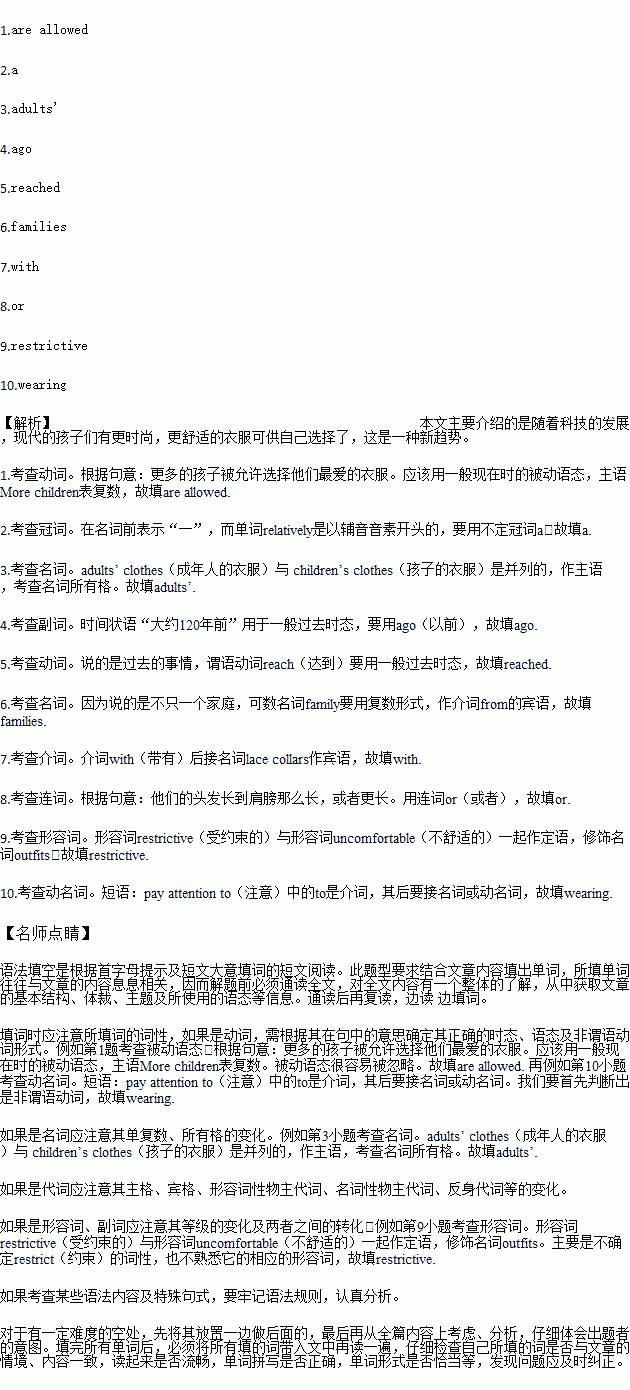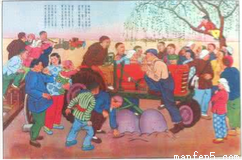题目内容
With the development of modern society and high technology, children wear more and more beautiful and fashionable clothes. More children 1.(allow) to choose their favorite clothes, which is 2.relatively new trend. Many years ago, children had to suffer the whims(突发奇想)of adults as far as clothes were concerned. Like 3.(adult) clothes, children’s clothes followed fashions as well. About 120 years 4., boys in Europe and America wore white ankle-length dresses, just like their sisters, until they 5.(reach) the age of five. Older boys from wealthy 6.(family) were then dressed in pretty velvet(丝绒) suits 7.lace collars. Their hair was grown to shoulder length 8.longer. For many unlucky boys, these carefully planned and organized costumes were nor reserved for special occasions; they had to wear the same 9.(restrict)and uncomfortable outfits for everyday play. Clean and proper clothes say that the person has both self-respect and respect for other people. Clothing can tell quite a lot about the person, sometimes more than we would like to reveal. So we should pay more attention to 10.(wear) proper clothes in different occasions.


